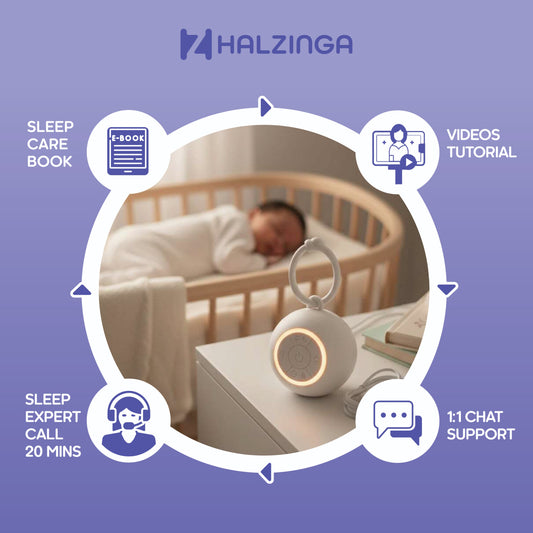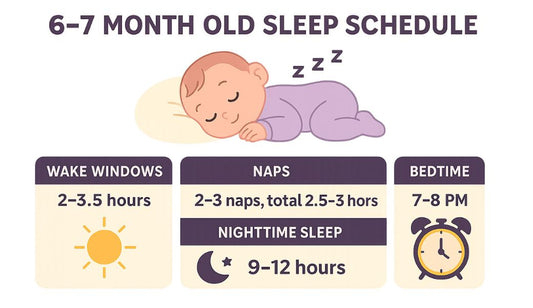
The Ultimate Guide to Baby Sleep Routines: Why Consistency Matters
As a parent, one of the greatest challenges during the first two years of your child’s life is establishing healthy sleep patterns. Babies need more sleep than adults, yet convincing them to drift into restful slumber is rarely easy. Many parents ask themselves: “Why won’t my baby sleep through the night?” or “Do I need a strict bedtime routine?” The truth is, consistency plays a powerful role in shaping your baby’s sleep habits. This guide explores why baby sleep routines matter, how to create one that works, and how consistency can transform both your baby’s rest and your own.
Why Baby Sleep Matters So Much in the First Two Years
Sleep is more than just rest; it is an essential building block for your baby’s growth and development. During sleep, a baby’s brain processes new information, builds memory connections, and regulates emotions. Adequate sleep also supports physical growth, as growth hormones are released in deeper stages of rest. Babies under 2 years old typically need between 12 to 16 hours of sleep in a 24-hour period, depending on their age. Missing out on consistent, quality sleep can affect not only their mood but also cognitive and physical development.
The Importance of a Sleep Routine
A baby’s world is filled with new experiences every day. Establishing a predictable sleep routine provides a sense of stability, helping babies feel safe and secure. Routines signal to your baby’s brain and body that bedtime is approaching, making the transition to sleep smoother. For parents, routines reduce the stress of nightly battles, as the baby learns what to expect. Over time, consistent sleep habits improve sleep duration, reduce nighttime awakenings, and set the foundation for healthy sleep well into childhood.
How Consistency Influences Baby Sleep
Consistency in sleep routines is often underestimated, but it’s the key factor that helps babies regulate their internal body clocks, also known as circadian rhythms. Babies are not born with fully developed sleep cycles. By keeping bedtime and nap times regular, you help train your baby’s brain and body to recognize when it’s time to rest.
When sleep routines are inconsistent—such as varying bedtimes, skipped naps, or irregular nighttime feedings—babies can become overtired, overstimulated, and more resistant to sleep. On the other hand, a predictable pattern helps them wind down more easily, reduces anxiety, and encourages longer, deeper sleep.
Elements of an Effective Baby Sleep Routine
Creating a bedtime routine doesn’t mean following a rigid script, but it should be predictable. Successful routines generally include calming activities that repeat in the same order each night. This repetition is what cues your baby’s brain that sleep is near. Common elements of an effective baby sleep routine include:
-
A warm bath to relax the body
-
Gentle rocking or cuddling
-
Feeding, if age-appropriate, to ensure your baby isn’t hungry overnight
-
Reading a short story or singing a lullaby
-
Placing the baby in their sleep space while drowsy but awake
The key is not the specific activities, but the calm and consistency you maintain. The more predictable the sequence, the faster your baby associates those actions with rest.
Daytime and Naptime Routines Matter Too
It’s tempting to focus only on nighttime sleep, but daytime naps play an equally important role. Babies who nap well are often better sleepers at night. Skipping naps or keeping your baby awake too long during the day can backfire, leading to overtiredness and nighttime struggles. Establishing consistent nap times, along with a mini-version of your bedtime routine, can help reinforce the sleep-wake cycle. For example, closing curtains, playing soft music, and offering a cuddle before placing your baby in their crib can signal that it’s time for rest.
Common Challenges Parents Face with Baby Sleep Routines
Even with the best intentions, most parents encounter obstacles when trying to establish a consistent sleep schedule. Growth spurts, teething, illness, and developmental milestones can all disrupt sleep. Travel, changes in environment, or even a busy household can make sticking to a routine more difficult. It’s important to remember that temporary setbacks are normal. The key is to return to the routine as quickly as possible once the disruption passes.
Another common challenge is the difference between sleep training methods. Some parents prefer gentle approaches, while others may follow structured techniques like the Ferber method. Regardless of the method chosen, consistency in approach is more important than the specific style. Babies thrive on predictability, so changing methods too often can cause confusion and resistance.
Balancing Flexibility with Consistency
Consistency doesn’t mean rigidity. Babies, like adults, may have off days. Life also brings unexpected events that can throw off routines. The goal is not perfection but regularity. If bedtime is usually at 7:30 PM, a slight adjustment once in a while will not disrupt long-term sleep patterns. What matters most is that the sequence of activities remains familiar and soothing.
Flexibility is especially important as babies grow and their sleep needs change. For instance, a newborn may sleep in short stretches around the clock, while a 1-year-old may take only one nap during the day. Adapting routines to match developmental changes while maintaining consistency in structure is the balance parents should aim for.
The Parent’s Role in Modeling Consistency
Babies learn by observing their caregivers. When parents approach bedtime calmly and consistently, babies feel reassured. If bedtime becomes a battle or if parents frequently change routines, babies may respond with anxiety and resistance. Setting the tone with patience, calmness, and repetition makes a world of difference.
Parents should also model healthy sleep habits by prioritizing rest for themselves. While this can be difficult in the early months, showing that sleep is valued in the household sets a strong example for children as they grow.
Creating a Sleep-Friendly Environment
A consistent sleep routine works best when paired with a sleep-friendly environment. Factors such as room temperature, lighting, and noise levels play a significant role in sleep quality. Experts recommend keeping the room cool, dark, and quiet. Blackout curtains, white noise machines, and breathable sleep sacks can all contribute to better sleep.
Safety is also paramount. Following safe sleep guidelines, such as placing babies on their backs in a crib free of pillows and blankets, ensures that consistency also supports health and well-being.
Long-Term Benefits of Consistent Sleep Routines
The benefits of establishing consistent baby sleep routines go far beyond the first two years. Children who learn to fall asleep independently and follow predictable sleep patterns are more likely to maintain good sleep habits throughout childhood. This translates into better behavior, stronger focus, and improved emotional regulation. For parents, it reduces stress, creates more time for self-care, and strengthens the overall family dynamic.
Research has shown that consistent routines, including bedtime practices, are linked with higher levels of cognitive and emotional development in children. Simply put, the effort parents put into sleep routines during infancy pays off for years to come.
Final Thoughts
Sleep can be one of the most challenging aspects of early parenting, but it’s also one of the most rewarding when managed well. Establishing a consistent baby sleep routine is not about perfection, it’s about creating a predictable rhythm that helps your baby feel safe, secure, and ready for rest. The consistency you practice today not only improves sleep in the short term but also builds lifelong healthy habits.
By focusing on calm, predictable bedtime practices and adapting them as your baby grows, you set the stage for better nights, happier days, and a stronger parent-child bond. Remember: your consistency matters, and your baby will thank you for it in the form of peaceful, restorative sleep.








